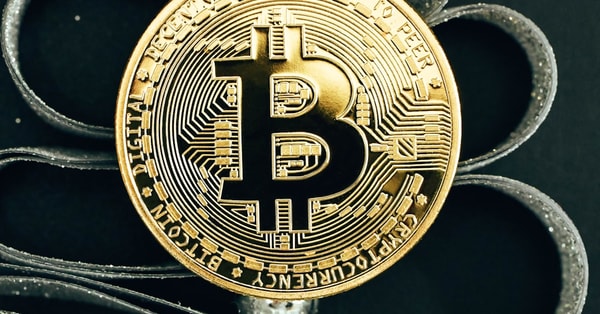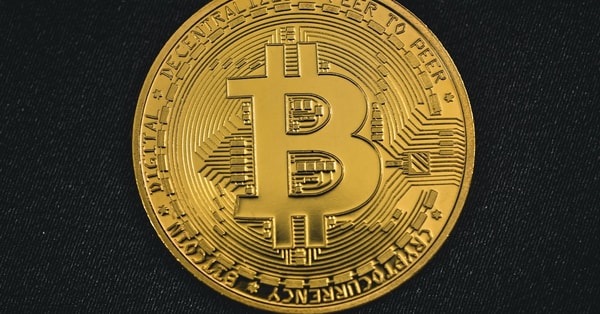Ripple's Support for 'Skinny' Fed Accounts: A New Era in Banking?
Ripple endorses the Federal Reserve's 'skinny' accounts, aiming for greater financial inclusion, though concerns about limitations persist.
In a significant move that has captured the attention of the financial sector, Ripple, the blockchain-based payment protocol company, has publicly endorsed the Federal Reserve's proposal for 'skinny' accounts. These accounts, designed to enhance financial inclusion and streamline the banking process, have sparked a debate among economists and policymakers. Ripple's backing comes despite the proposal's notable limitations, raising questions about the future of banking in the digital age.
The concept of 'skinny' Fed accounts refers to a simplified banking account structure proposed by the Federal Reserve. Unlike traditional bank accounts that offer a wide range of services, skinny accounts would provide essential banking functions such as deposits and payments without the additional features, like loans or credit offerings. The primary aim of these accounts is to facilitate easier access to financial services for underbanked communities and individuals who may not have access to conventional banking.
Ripple has been at the forefront of advocating for enhanced financial accessibility through the use of blockchain technology. By supporting the 'skinny' account initiative, Ripple aligns itself with a vision of a more inclusive banking system. The company argues that these accounts could serve as a crucial tool in bridging the gap between traditional banking systems and the growing demand for digital financial solutions.
Despite its potential advantages, the 'skinny' account proposal is not without its limitations. Critics have pointed out that the lack of credit facilities associated with these accounts could hinder individuals from achieving financial growth. Without access to loans or credit, users may struggle to finance education, homes, or businesses, perpetuating a cycle of financial instability.

Furthermore, the operational framework for these accounts remains unclear. Questions about how these accounts would be managed, who would be eligible, and what regulations would govern them are yet to be addressed fully. The Federal Reserve's proposal has opened the door for discussion, but clarity is essential for its successful implementation.
Financial inclusion is a pressing issue globally. According to the World Bank, approximately 1.7 billion adults remain unbanked, lacking access to even the most basic financial services. This lack of access contributes to poverty and economic stagnation, particularly in low-income communities. By supporting the 'skinny' account initiative, Ripple is positioning itself as a champion for change, aiming to empower individuals and communities through improved access to financial resources.
Ripple's endorsement of 'skinny' Fed accounts is part of a broader strategy to influence the future of banking. The company has been vocal about the need for modernization within the banking sector, advocating for the adoption of blockchain technology to streamline processes and enhance security.
As digital currencies and decentralized finance (DeFi) continue to rise, Ripple's technology could play a crucial role in facilitating transactions within these 'skinny' accounts. The integration of blockchain could provide transparency and efficiency, potentially addressing some of the concerns associated with traditional banking systems.
The support of major industry players like Ripple could spur policymakers to take the 'skinny' account proposal more seriously. For the initiative to succeed, it will require collaboration between financial institutions, technology companies, and government agencies. Policymakers must ensure that regulations are in place to protect consumers while promoting innovation in the financial sector.
Furthermore, ongoing dialogue between stakeholders is essential to refine the proposal. Addressing concerns about credit access and operational transparency will be critical steps in fostering trust and encouraging adoption among potential users.

Ripple's backing of the 'skinny' Fed accounts marks a pivotal moment in the evolution of banking. While the proposal faces significant limitations, the potential benefits it could bring to marginalized communities cannot be overlooked. As discussions continue, the collaboration between Ripple, the Federal Reserve, and other stakeholders could lead to transformative changes in the financial landscape.
The future of banking may very well hinge on initiatives like the 'skinny' accounts, and with the right support and implementation, it could pave the way for a more inclusive and equitable financial system.
Related Posts
Start Your DIY Hydroponic Garden: A Beginner’s Guide
Ever dreamed of growing fresh veggies indoors? Discover how to start your own DIY hydroponic garden and enjoy garden-fresh flavors right at home!
Remote Work Trends to Watch in 2024
Curious about what remote work will look like in 2024? Discover key trends and insights that will shape our work lives in the coming year!
5 Proven Tips to Boost Your Focus and Productivity at Work
Struggling to focus at work? Discover five research-backed techniques that can help you sharpen your concentration and elevate your productivity!
Kickstart Your Creativity: A Beginner's Guide to Illustrator
Ready to dive into digital art? Join me on a fun journey through Adobe Illustrator, where I'll help you unleash your creativity, step by step!
E-commerce in 2023: Trends Shaping Our Shopping Future
Curious about how shopping has changed since the pandemic? Discover the latest e-commerce trends and what they mean for your online experience in 2023!
10 Essential Tips for Better Remote Team Communication
Struggling with remote team communication? Discover 10 practical tips that can help your virtual team thrive and connect more effectively.